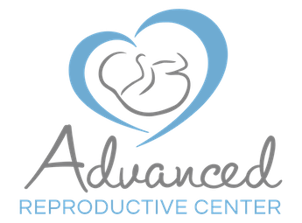
We would like to introduce you to InVia Fertility Specialists, a leading provider of innovative, evidence-based fertility treatments in Illinois. The Advanced Reproductive Center has now joined InVia Fertility Specialists which means more benefits for you including access to compassionate, individualized care provided by a larger team of fertility specialists, including Dr. Vishvanath C. Karande, Dr. Sigal Klipstein, Dr. Elizabeth Puscheck, and Dr. Thanh-Ha Luu; a larger network of insurance carriers for affordable treatment options; more locations and telehealth appointments for you to access care.
InVia Fertility is now providing patient care and monitoring appointments at the former Advanced Reproductive Center location in Rockford, IL. The Advanced Reproductive Center Arlington Heights and Peoria offices have closed, and Arlington Heights patients can transfer their care to the InVia Fertility Arlington Heights office, located at 1100 W. Central Rd Suite #404, Arlington Heights, IL 60005. Telehealth patient consultations are available for added convenience.
1585 North Barrington Road
Doctors Building Two
Suite 406
Hoffman Estates, IL 60169
Phone: (847) 884-8884
1100 W. Central Road
Suite 404
Arlington Heights, IL 60005
Phone: (847) 884-8884
InVia Fertility Specialists’ principal medical staff includes physicians who understand that patients need doctors who are not just experienced, but accessible, compassionate, and personable.
In an effort to provide affordable fertility care, InVia Fertility is also proud to accept all major insurance carriers including:
We are also recognized as a Blue Cross Blue Shield Center of Distinction as well as an Institute of Excellence with Aetna.
If you are ready to proceed with treatment, you are welcome to transfer your embryos to InVia fertility. Please call to schedule your appointment and our team will be happy to help you coordinate.
Please call InVia to schedule your appointment and we will be happy to help get you started!
Although new and return consults can be handled via zoom, Dr. Karande will be in Rockford for in-patient visits, ultrasounds and HSNs as early as March 2024.
The PROGRESS Study is an investigational study to determine if Progesterone-IBSA administered as an injection under the skin (subcutaneous) is safe and effective in supporting the implantation and early pregnancy following a frozen embryo transfer (FET) for women ages 35-42. You can learn more about this study here.
Yes! We are aiming to resume monitoring in Peoria and Rockford as early as February.
Only if it has expired. We are able to accept all previous workup based on the date of completion.
InVia Fertility has taken over the custody of your medical records. To access your former medical records from Advanced Reproductive Center, please contact InVia Fertility at 847-884-8884 to request a copy of your medical records or click here for a medical records release form.

Entire Website © 2003 - 2020
Karande and Associates d/b/a InVia
Fertility Specialists
